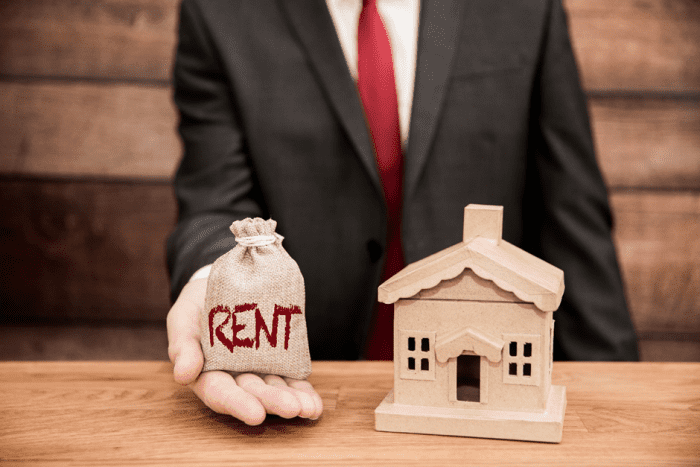The Pros & Cons of Buying a Tenanted Property in Ontario
August 16, 2022Investing in Real Estate
Real estate investments are an excellent way to create an income-generating source, a popular mainstay in financial portfolios. As a result, many Canadians are considering buying homes, commercial buildings, and residential rental properties to diversify their investments. With low-interest rates and demand outstripping supply, the Canadian real estate market has steadily grown with attractive returns. Moreover, Canadian property investments can be lucrative once informed about real estate tax laws.
First, the Benefits
A sure-shot way to profit from real estate investing is to buy a tenanted property, rent it out, and earn a steady monthly income.
Quite a few expenses can be legally deducted from the rental income, which means you pay less tax. For example, you can deduct mortgage interest, property taxes, insurance, maintenance, and upgrades. Moreover, if the expenses are more than the income, you may offset the losses from your other sources of income, if any. Last, real estate usually appreciates and accumulates equity over time. Historically, there has been a growth in property value in the long run.
Second, the Drawbacks
A 20% down payment is the norm when you buy a second property. However, you may also need a mortgage, which makes finances tricky. While the rental income should cover the property’s expenses, you will need a few thousand for a complicated scenario such as major renovations or evicting tenants. Regardless of whether the properties earn rentals, owners must pay the mortgage, property taxes, and other mandatory expenses. Being a landlord is not an easy task; you will be dealing with tenants, maintenance and renovation of the property, and rent collection. If you decide to outsource property management, the costs go up. Liquidating the investment will be difficult – selling a rental property may take considerable time and effort, depending on market conditions. In addition, negotiating deals with potential buyers, real estate, and legal fees can be cumbersome.
Breaking Down to Basics
An active landlord means hands-on involvement and responsibility to your tenants, over and above dealing with the actual property. Many people manage residential rental properties themselves, but you can always hire a property manager to do this for you.
The Residential Tenancies Act
The Residential Tenancies Act balances the rights and responsibilities of landlords and tenants and helps avoid potential problems. This Ontario Landlord-Tenant Act protects tenants from unlawful rent increases and evictions and regulates residential rents.
The Landlord and Tenant Board
The Landlord and Tenant Board (LTB) is an independent tribunal with the authority to resolve residential tenancy disputes in Ontario. The LTB also provides information about its practices and procedures and the rights and responsibilities of landlords and tenants under the Residential Tenancies Act.
Duties of a Landlord
Landlords are expected to provide a habitable property that complies with all the necessary stipulations, such as safety, health, housing, and maintenance standards, per the provincial government or municipal by-laws. When buying a tenanted property, the purchase agreement must include information about current tenants and lease terms. If buying a house as their primary residence, the new owner must wait for the existing lease to expire.
Residential Tenancies and Lease Agreements
A lease agreement is a contract between a tenant and a landlord that gives the tenant the right to live in the property for a fixed period. For example, an Ontario landlord leasing out private residential rental units is expected to use the standard lease agreement provided by the LTB.
Landlords must provide all new tenants with a new tenant notification form at the start of the lease. Long-term tenant leases range from six months to 1 year, with non-renewal requiring a written notice of up to 120 days. However, a month-to-month agreement is preferable if you want more flexibility. A month-to-month tenancy is a lease agreement between a landlord and a tenant that includes automatic renewal every month until either party gives 30 days’ written notice of non-renewal. In addition, if the landlord intends to break a lease, the tenant can claim moving costs in some provinces of Canada. While buying tenanted properties, potential buyers can look for an immediate income property; in other words, the property is ‘sold with vacant possession,’ meaning it is empty on the day the sale is completed.
Bad Faith Eviction
The new landlord of a tenanted property cannot terminate the tenancy or evict tenants without facing critical legal ramifications. The landlord can be prosecuted for bad faith eviction if they do not offer the tenant the right of first refusal to move back following repairs or renovations. One of the methods for successfully evicting tenants is to ensure the landlord or a close family member resides in the vacant unit for at least one year after the tenants have vacated.
Steady Returns on Investment
Rental income can be a source of steady income for investors. According to the Global Property Guide, you can earn a gross rental return of around 3%-5% in the Canadian Real Estate market. The demand for rentals is recovering across Canada, supported by the slowly growing economy. As a result, demand has substantially increased, even as a comparable supply response meets it. Moreover, this demand-supply tango will see an upwards trend as immigration starts in earnest.
Commercial Properties
You can also invest in commercial properties, from office buildings to shopping malls. Commercial rental income can be a substantial source of income through real estate investing. The revenue from commercial property rentals can be significantly higher than from residential tenancies. Moreover, the nature of commercial rentals pre-supposes longer lease terms and professional tenants who are less likely to create problems.
Summing Up
Being a successful landlord is not just collecting rent every month. You must understand your responsibilities and offer your tenants attractive, well-maintained properties. A long-term plan is essential for investing in real estate. A typical buyer should look for a property in a desirable location after thoroughly researching the local rental market. Consulting local Real Estate agents for expert advice is a good strategy, as is calculating the estimated cash flows. This will help you be better prepared to sail through any unexpected turns in the housing market. Like any other investment, earning a regular income from real estate requires research and planning. When you do so, buying a rental property can be immensely profitable and satisfying. Contact us, and we shall help you get started.

